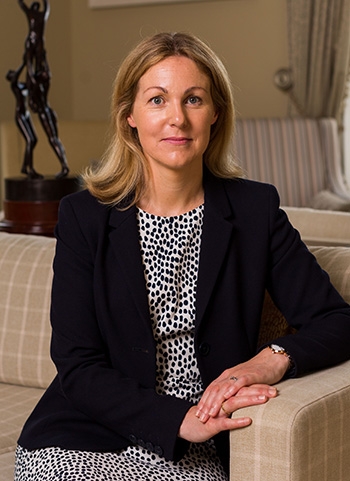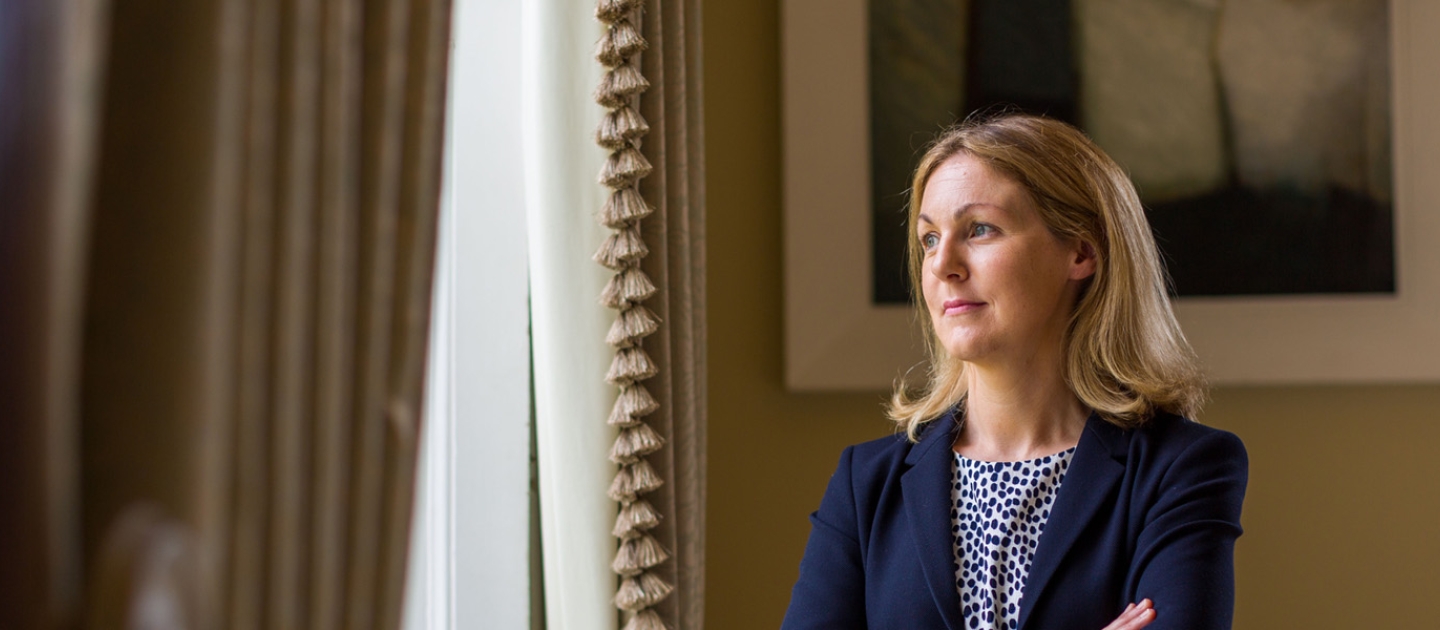Research is at the very core of everything Norelee Kennedy does. It is in her fibre, her very being.
After accepting the role as the new Vice-President for Research (VPR) at University of Limerick in July, she promptly took a four-month period of research leave before starting in the job.
Professor Noreen Kennedy, to give her full name – Norelee is a “family name that stuck,” she explains – has worked as an academic in UL for 15 years. The now former Associate Professor of Physiotherapy and Head of School of Allied Health in UL is a Tipperary native who graduated from Trinity College Dublin with a BSc Physiotherapy in 1999 and a PhD in 2004.
Her research focuses on inflammatory arthritis and physical activity in exercise – and it will continue in her new role as VPR, as it did while she was head of school. There is still work to do for Norelee, who alongside being an academic leader, has been awarded almost €3m in research funding from national and EU funders.
“I used to try and keep Tuesday as a day to focus on research,” she explains of her previous role. “At least psychologically, you knew you had that, and I am trying to do similar here. The reality is that things will get in the way. That is fine – and it is extremely ambitious.
“There are 24 hours in the day! I am quite highly organised, because I have to be. The initial learning of a job is incredibly busy because you have to read everything to know what you are doing and what you are not doing. But you do have to trust people and allow people who know what they are doing and have done it for a long time to advise you,” she adds.
Professor Kennedy graciously agreed to meet UL Links at the end of her first week in the role to talk about her plans for the future of research at the University, how she ended up in the position and her career to date.
It is a rainy Friday in January as she sits at the desk in her new office in the Foundation Building and casts an eye out over the campus landscape.
Asked if it is an exciting time to be joining the senior leadership of UL, Norelee has a quick as a flash response: “Absolutely it is. Every phase brings something new.
There is no shortage of ideas, energy and enthusiasm and I think it is a new phase – I like that. I get energy from new things.
“I have learnt enough over the years to know what motivates me – and every so often I threaten to go and learn how to play golf and do nothing else, but a few failed attempts on that and my poor husband does say ‘please go to work because you drive me mad wanting to paint another room’,” the new VPR laughs.

“I know UL well and I know how fantastic the place is, with a fantastic group of people who are very committed and passionate about UL and the region,” she adds.
Norelee has progressed at every level within UL, working as lecturer, senior lecturer, associate professor and head of school. It has given her a perspective on the inner workings of the University, while reaching the position of VP has filled her with a sense of responsibility.
“I suppose it is that realisation of the enormity of the place and the role. You do have a huge sense of responsibility,” she explains.
“I would be naturally somebody who looks for new challenges, so every five years things have suddenly seemed to arrive – timing is everything in life I think.
“The environment here enables people to do that. I have always found that a very positive thing about UL and working here is that the environment is so conducive to innovation and trying new things and doing new things.
“I suppose by the nature of the discipline that I come from and the way we teach our students in health professions, is very much focused on that notion of reflection and self-awareness and professionalism, so you bring that to everything that you do and you are thinking ‘why am I doing this’? Is there a better way? That has certainly influenced me hugely as well.
“UL is known for being innovative, creative and dynamic – we live that, and making sure we continue to do that as a University for our students, is important,” she adds.
Since 2014, the global reach of UL’s research collaborations has reached nearly 2,000 organisations in over 100 countries, with total research income at €277m. The job of work ahead of the new VPR is a big one – and she knows it. She is determined to build on the existing research strengths and successes with the University’s academic and industrial partners and the research centres that are located on campus.
“Research should be at the heart of what we do and is fundamental to everything that we do at UL,” she explains.
“It is such an exciting opportunity to look at the next phase of research for UL. We have an excellent base in what we are doing in our research here and I think there are opportunities to look at new ways of bringing people together to work in interdisciplinary ways.
“We do need to broaden our base of research; look at things that we are doing and how we are doing it and maybe adding more supports or structures.
“There is an internal arm to the focus of the role that I want to bring to it – how we do what we do in UL, but then there is the outside piece about how we can influence and build and position ourselves.
“I see a lot of synergies between what I do as VPR and what Kerstin Mey does as Vice President for Academic Affairs – they are certainly not mutually exclusive and they need to work coherently.
“Kerstin and I, as academics, are both very keen about having synergies across research and teaching. Absolutely the best experience for students is when you can have them exposed to the coalface of research.
“Being mindful of that, there is a whole side of work in the VPR role in industry and our external relationships – that is very, very important and I am going to work with the research office as to how we do that, ways to optimise that networking, that connecting, that continuing to build our industry partnerships.
“I have spoken to some key external funding people recently and they see UL as very strong players in research – particularly around Bernal, Lero, the HRI and what is emerging around health research.
“They see our interdisciplinarity as a strength and would advise us to build on that.
“It is fantastic, absolutely fantastic what they are doing in Bernal. You can see the development of a very strong fabric of legacy now developing and it is getting stronger, growing and developing,” she adds.
Norelee fully intends to lean into her expertise in health, calling cancer research “the next frontier” for UL.
“I am very confident for the future of health research at UL,” she confirms.
“I think it can have added value in our data and digital space, I think there is huge potential for that. We are at a good time, where we have a very solid foundation to grow our base from, and that is very important.
“It is a fantastic campus with fabulous facilities – we are very fortunate. I do feel very privileged to be able to take on this role and my hope is by the end that we are stronger and have continued to further develop from the excellent base that we have.”
- Alan Owens
Listen here to the Research Soapbox podcast, an event that highlighted how research can make a real difference.
